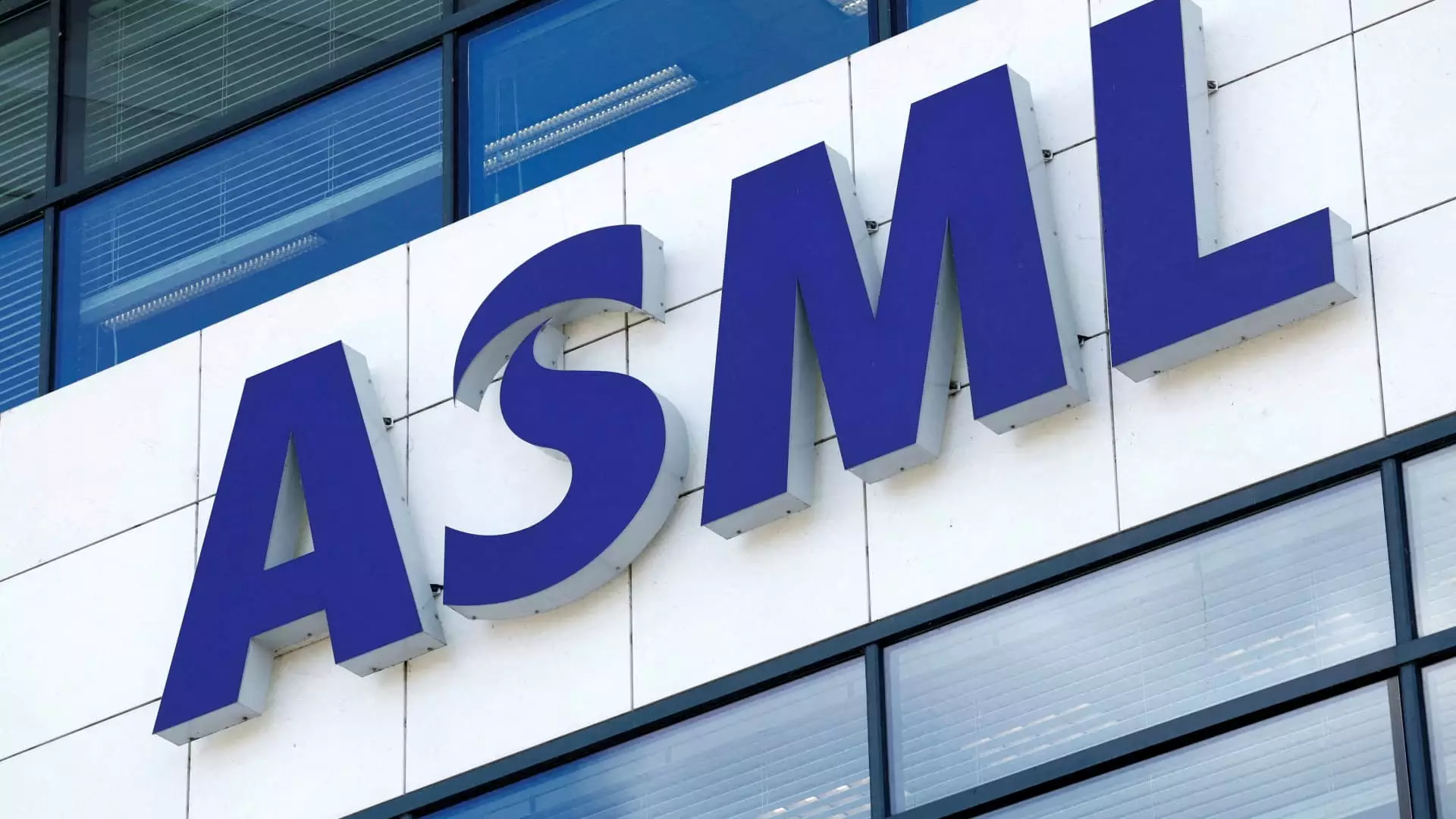ASML, the Dutch semiconductor company, reported second-quarter earnings and sales that surpassed expectations, fueled by the growing interest in artificial intelligence chips. Net sales stood at 6.24 billion euros, exceeding the 6.03 billion euros that analysts had predicted. Similarly, net profit reached 1.58 billion euros, higher than the estimated 1.43 billion euros. This positive performance comes in the wake of rising demand for ASML’s critical semiconductor manufacturing equipment, particularly in the realm of AI chips.
The company had previously projected second-quarter net sales to fall within the range of 5.7 billion euros to 6.2 billion euros. Despite a 9.5% year-on-year decline in net sales and an 18.7% drop in net income, the figures were an improvement from the previous quarter. Furthermore, net bookings, a crucial measure reflecting orders for ASML machinery, experienced a significant increase of more than 24% to 5.6 billion euros in the June quarter. ASML, which is renowned for producing extreme ultraviolet (EUV) lithography machines, crucial for the production of cutting-edge chips, affirmed 2024 as a “transition” year for the semiconductor industry.
The company maintained its full-year outlook and now expects third-quarter net sales in the range of 6.7 billion euros to 7.3 billion euros. This forecast was slightly lower than analysts’ expectations, who had anticipated revenue of 7.6 billion euros. ASML’s CEO, Christophe Fouquet, expressed optimism about the industry’s recovery in the second half of the year, citing strong developments in AI as a significant driver of growth.
Several major chipmakers, such as Taiwan Semiconductor Manufacturing Co. (TSMC) and Samsung, are constructing new semiconductor manufacturing facilities in response to the predicted cyclical upturn in 2025. The increasing demand for ASML’s systems necessitates preparation for these forthcoming fabs, essential for the company’s global customers. Despite geopolitical challenges, including export restrictions imposed by the Dutch government following U.S. pressure, ASML remains resilient. While China, a critical market for ASML, accounted for 49% of sales in the second quarter, geopolitical tensions have raised concerns about the company’s operations.
AI, although currently a modest revenue contributor for ASML, shows significant growth potential. Ben Barringer, a technology analyst at Quilter Cheviot, believes that AI will play a more substantial role in ASML’s revenue generation in the near future. As the industry focuses on AI-driven advancements, ASML is well-positioned to capitalize on this growing trend.
ASML’s robust performance in the second quarter underscores its position as a key player in the semiconductor industry. With AI chips driving demand for its cutting-edge equipment, the company is poised for continued growth and success, despite facing geopolitical uncertainties and regulatory challenges. As the industry evolves towards AI-driven innovations, ASML remains at the forefront of technological advancements, paving the way for a promising future.


Leave a Reply